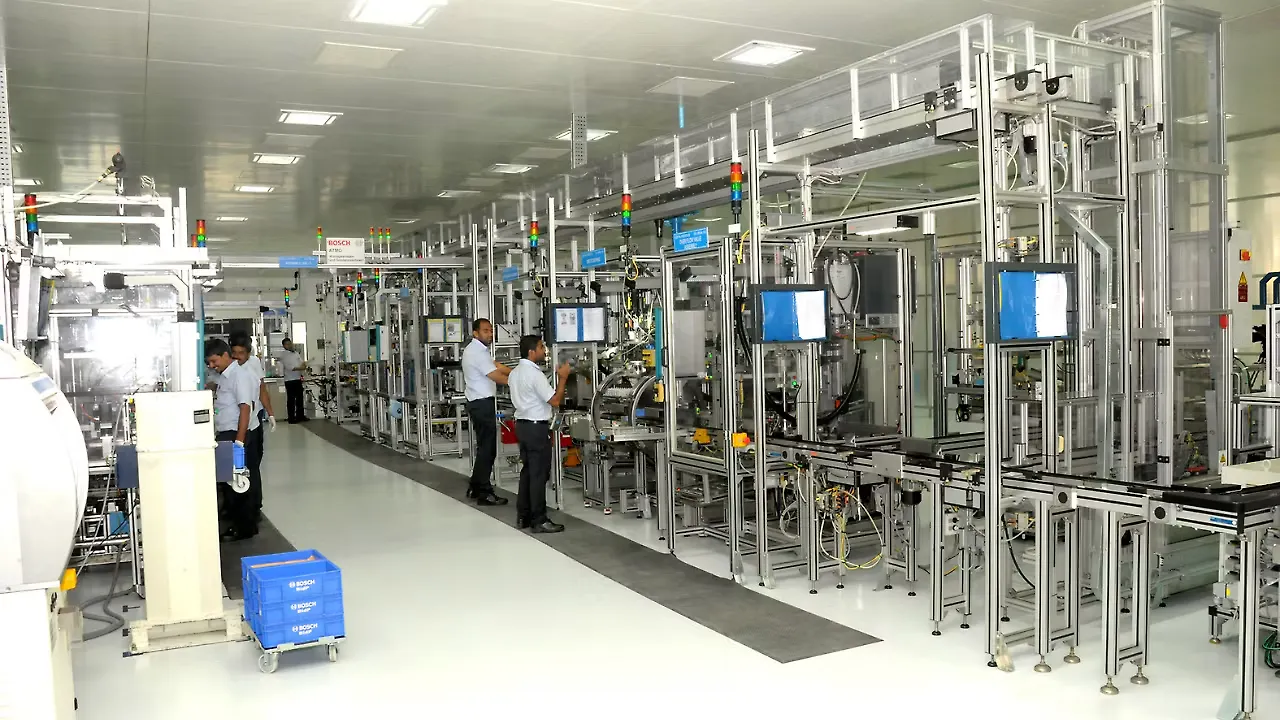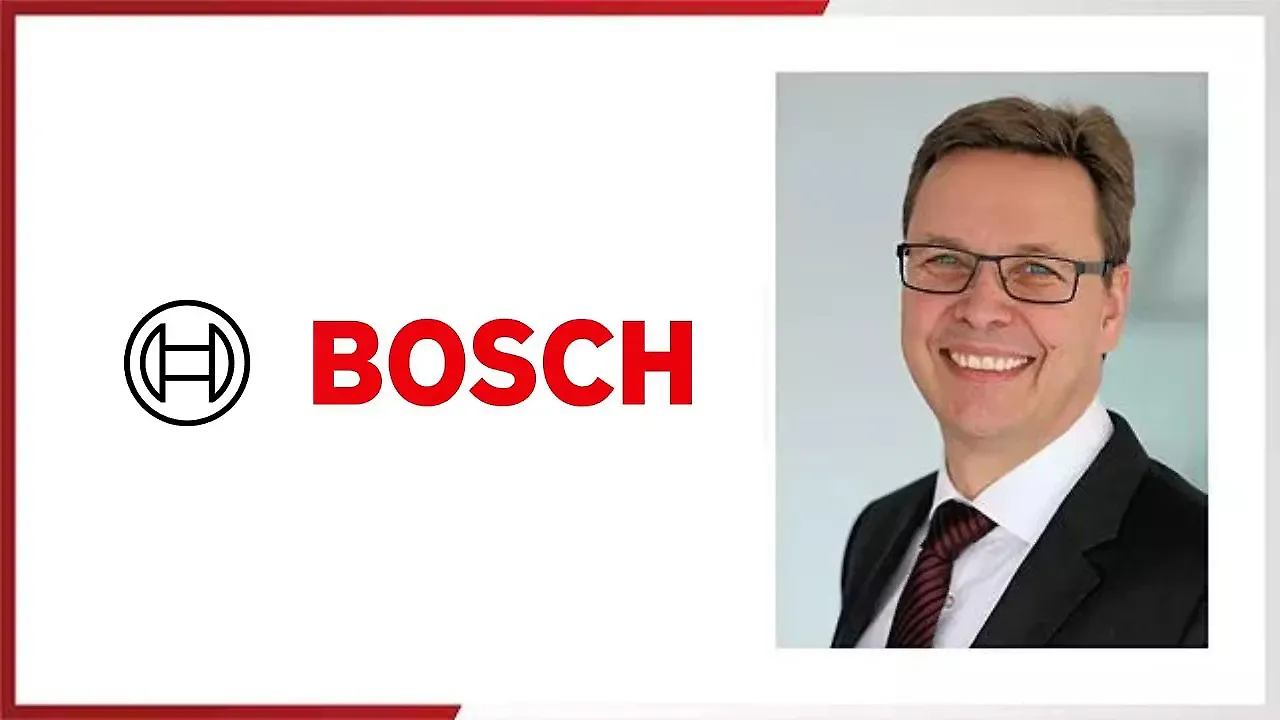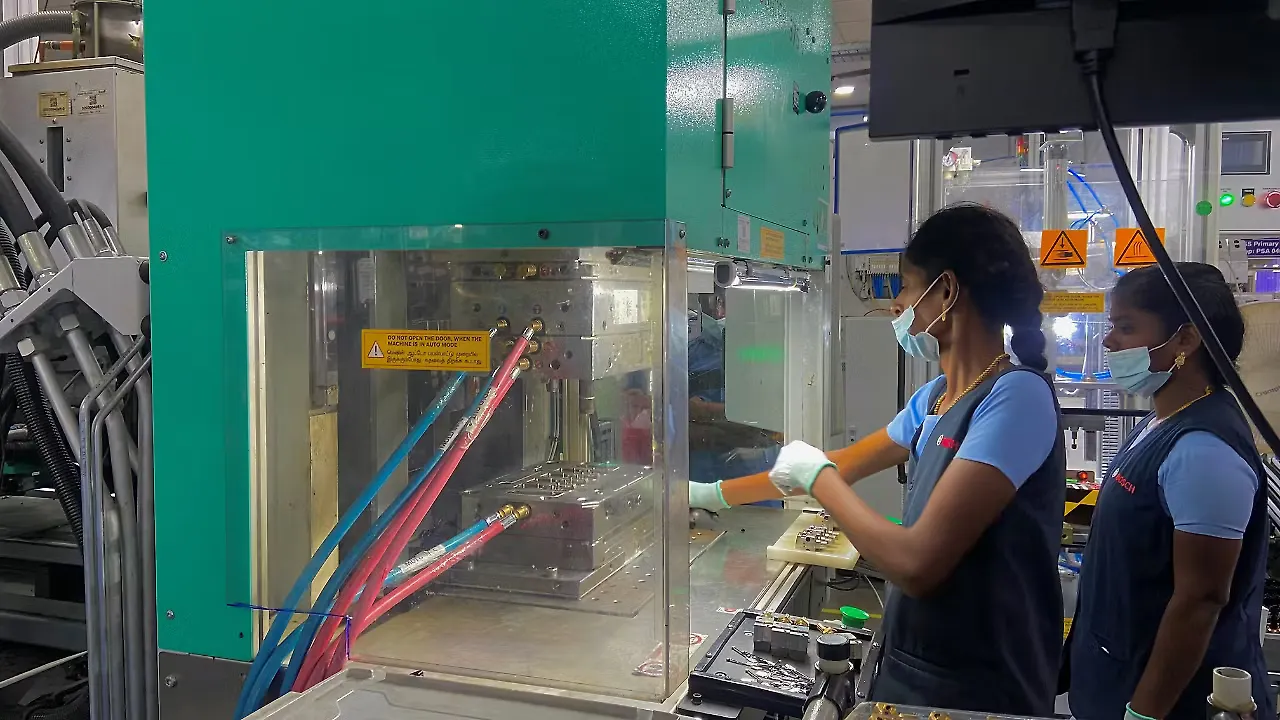
Bosch, the German automotive ancillary supplier, has been investing significantly in bringing about digital transformation across functions. These are largely built around products and solutions, processes and people capabilities.
Manufacturing
Manufacturing as an activity has been evolving both at Bosch Global and Bosch India since the products it makes also steer priorities worldwide. It puts in context why industrialisation concepts roll out across its functions globally, says Karsten Mueller, Executive Vice President, Manufacturing and Quality, Bosch India.
During an interaction with Mobility Outlook, he concedes that automation levels in India do not match global levels even while the processes are the same. While manufacturing processes are similar and, hence, designed so, the way they are performed is different. “There can be more manual-driven lines here (India) while globally we go more for automation,” says Mueller.
Connectivity
On connectivity, the group tries to be in sync and is consequently developing global platforms, streaming pipelines, and manufacturing execution systems (MES) developed in-house to operate complex machines. It follows corporate strategies on target infrastructure since the same is needed worldwide to roll out software on the enterprise and machine levels.
Manufacturing & Logistics Platform
“We standardise the platform for unstructured and structured data Bosch will introduce, over the next three to four years, the standardised Bosch Manufacturing and Logistics platform; it will be 100% standardised, making the accessibility to data easier,” explains Mueller.

As a result, the connect to data and applications will allow easier execution of simple analytics “based on self-services for our manufacturing engineers as well as complex analytics based on machine learning and more complex kinds of analytics tasks”.
Energising Value System
According to Mueller, Bosch has a clearly laid out manufacturing strategy for India. “We want to make India a globally preferred value chain partner. It’s no longer just manufacturing or logistics but value chain. It’s end-to-end,” he reiterates.
Geopolitical issues in the form of wars and the supply chain crisis leading to a chip shortage have compelled manufacturers to think more end-to-end, more regionalised, and more on self-reliance and resilient supply chains. In the case of Bosch, its manufacturing and logistic platform covers dock-to-dock at factories and from end-to-end customers to suppliers. In short, it encompasses the entire system with all connectivity solutions.
The system will cover both outbound and inbound logistics, right from its Tier 1 suppliers to the customer. “So far, our suppliers are not within the scope and we need to debate on the depth of connectivity into their systems. We are trying to run some pilots and our suppliers are also willing to share data with us. It comes down to the commercials as well,” elaborates Mueller.
While the system helps Bosch and its customers seamlessly connect with suppliers, the challenge lies in their locations as well as the different stages of their operations. Mueller believes the solution lies in uplifting the IT systems of a supplier to allow connectivity based on the automated system itself.
Many suppliers are running more Excel-based (or something similar) and here is where the group offers ready-made portals where a buyer can deliver some standardised data format. Eventually, it can get the connectivity and the needed insights to operate the supply chain.
For instance, Bosch implements supermarket pull systems with suppliers, bringing transparency. Mueller agrees that it is necessary to motivate suppliers and come out with some lightweight MES. Support also comes from Bosch Global Software Company so that suppliers can learn and evolve. All this will help connectivity become a lot easier.

Blockchain
On Blockchain as a technology to seamlessly connect the entire value chain, Muller says Bosch is not giving it top priority right now. “We are looking more into automation of data control points in the supply chain and then reaching levels of the data control tower. Later, we can also look into the revenue streams,” he adds.
For Bosch, it is more to bring some basic/conventional things like auto goods received or auto invoicing. “We can also look at automating intra-logistics, auto docking and accounting systems as well as automated supermarkets to have automated visibility of our inventories,” continues Mueller.
This is where “we are working in India much more” and Blockchain plays a role. “We are observing this and using it but not as a 100% solution yet,” he signs off.
Also Read
Bosch India Joins PTV Group For Connected Mobility
Bosch India Opens Spark.NXT Campus To Meet Future Business Expectations